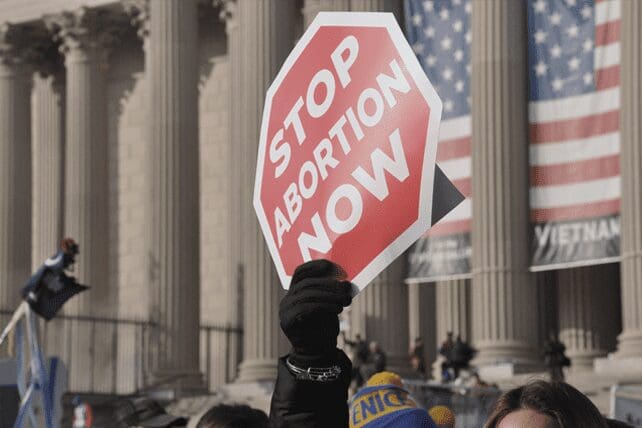For nearly five decades, the pro-life movement in America has been united in its vision to overturn Roe. Now that it appears that vision may be soon realized, the ensuing discourse among pro-lifers has brought into focus the fact that this big tent movement is far from monolithic.
After a leaked Supreme Court draft opinion revealed that Roe may soon be overturned, returning the question of abortion’s legality to individual states, cascading battles to pass responsive legislation have ensued.
On Wednesday (May 11), Democratic senators presented a bill that would federally protect abortion rights, which was ultimately struck down by a 49-51 vote.
Had it passed, the Women’s Health Protection Act (WHPA) would have provided federal protections for abortion rights up to the point of birth, striking down regulatory laws surrounding abortion at the state level. Every Republican senator voted against it, and Democratic senator Joe Manchin crossed party lines to join them.
Conversely, a Louisiana state bill proposed that women who procure abortions should be subject to criminal prosecution and imprisonment. The reasoning behind the proposed law is that the intentional killing of an unborn child should be treated the same under the law as murder.
While a subset of the pro-life movement favors this line of reasoning, another contingency of pro-lifers strongly opposes legislation that would impose criminal prosecution on mothers who have sought an abortion.
In response to such possible legislation, leaders from 66 different pro-life organizations signed an open letter to all state legislators, arguing that women who have abortions are “victims” and “require our compassion and support as well as ready access to counseling and social services in the days, weeks, months, and years following an abortion.”
“If the Supreme Court does overturn Roe v. Wade, they will be honoring the unambiguous division of powers described in the Constitution, returning abortion policymaking back to our elected state and federal legislators,” the letter says. “This will be a tremendous opportunity for states to create durable policy that can stand the test of time. But in seizing that opportunity, we must ensure that the laws we advance to protect unborn children do not harm their mothers.”
“In fighting for our country’s future generations, we are called to act with love and compassion as we seek fairness, justice, and liberty for unborn children and their mothers,” the letter goes on to say. “Criminalizing women is antithetical to this charge…We call upon all pro-life legislators to stand with us.”
The sponsor of the Louisiana bill abruptly pulled the proposal from debate Thursday night after House members voted 65-26 to totally revamp it, eliminating criminal penalties.
Among those to sign the open letter to state legislators was Brent Leatherwood, acting president of the Ethics and Religious Liberty Commission (ERLC), which is the public policy arm of the Southern Baptist Convention (SBC). The appearance of Leatherwood’s name on the document drew sharp criticism from some within his own denomination, including one pastor vying for the SBC presidency this June.

